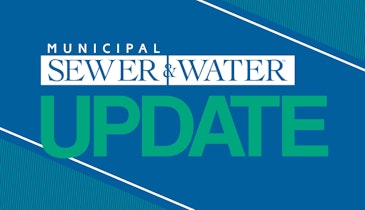Interested in Infrastructure?
Get Infrastructure articles, news and videos right in your inbox! Sign up now.
Infrastructure + Get AlertsNearly 320 homeowners in the West Hills of Portland, Ore., will receive city-financed laterals, thanks to a pilot program that’s attempting to limit rainwater entering the city’s sewer system. According to an article on Oregon Live, city officials hope the project will prevent rainwater from infiltrating aging pipes during heavy storms, which has caused sewage spills into nearby Fanno Creek.
The $1.25 million project targets an area prone to overflows, where hilly terrain made of clay and silt can quickly become saturated by rainwater. Bill Ryan, chief engineer at the city’s Bureau of Environmental Services, says the city is paying for the work because simply upgrading and improving city-owned pipe is not enough.
“You can take care of the public portion of the sewer and solve (only) a small portion of the problem,” Ryan says in the article.
The city estimates the cost of replacing the laterals is less than increasing capacity with larger pipes or building a separate stormwater system. Officials will track results from the pilot program this winter and then consider extending it to other areas of the city.
Source: Oregon Live
Study Blames Leaking Pipes for Sewer-to-Stormwater Contamination
A Wisconsin-based research project has identified Bacterioides, a bacterium that indicates the presence of human sewage, in watersheds throughout the area, according to an article in the Green Bay Press Gazette. The research team, headed by Sandra McLellan from University of Wisconsin-Milwaukee’s School of Freshwater Sciences, analyzed more than 1,300 water samples from stormwater outfalls in six Milwaukee-area watersheds. Every sample contained the bacterium, indicating a widespread problem with sewage mixing with stormwater.
The problem could be a nationwide issue, even in areas with separate systems.
“The sanitary sewers are so leaky,” says Trina McMahon, a University of Wisconsin-Madison professor in the article. “There’s so much potential for sewage to get into stormwater and go into the lakes. I was a skeptic about the bacteria or pathogens being in the stormwater, but the work coming out of UW-Milwaukee has really changed my mind on that.”
Madison crew members are using epoxy to combat infiltration. This year, the city will spend $1.3 million in an ongoing project to improve city-owned lines.
Source: Green Bay Press Gazette
Aging Grand Canyon Water Pipeline Brings Hefty Price Tag
Pipelines in Grand Canyon National Park that supply water for park visitors, hotel guests and Canyon residents need to be replaced, according to a Casa Grande Dispatch article. The aging system, which consists of steel and aluminum pipe, experienced another failure this month after a rock tumbled onto a steel section. Hikers in the park were without water until crews could fly in by helicopter to make repairs.
Grand Canyon officials have been saving a portion of park entrance fees to pay for the distribution system upgrades, but that might not be enough.
“The Park Service has recognized that because of the magnitude of it, the implications and the cost to it, it’s no longer just Grand Canyon’s problem,” says Maintenance Chief Tim Jarrell in the article. “It’s the Park Service’s problem, so we have everyone’ ear.”
Officials say the distribution system, which moves water from a spring in the canyon to storage tanks on the rim, was not designed to last this long. The park hopes to complete an engineering study on the system this summer that will outline strategies for replacing the pipelines.
Source: Casa Grande Dispatch
North Carolina Provides $63 Million for Water Infrastructure
Municipalities in North Carolina will receive $63 million for water infrastructure projects through the state’s Water Infrastructure Authority. The largest portion — $12 million — will go to the City of Raleigh for the Crabtree Basin Wastewater Conveyance Improvements, which is focused on increasing capacity with a new gravity sewer interceptor. The money will fund 41 projects throughout the state.
Source: Triangle Business Journal






